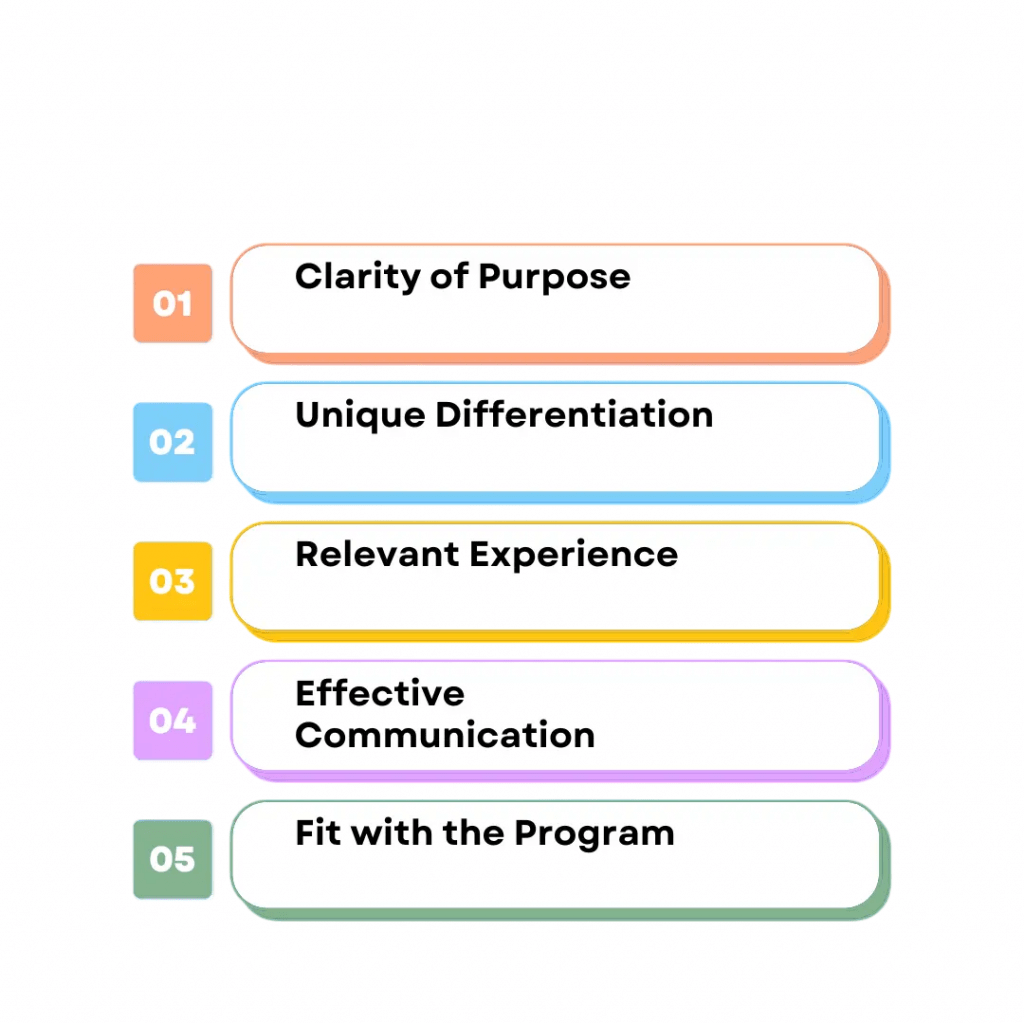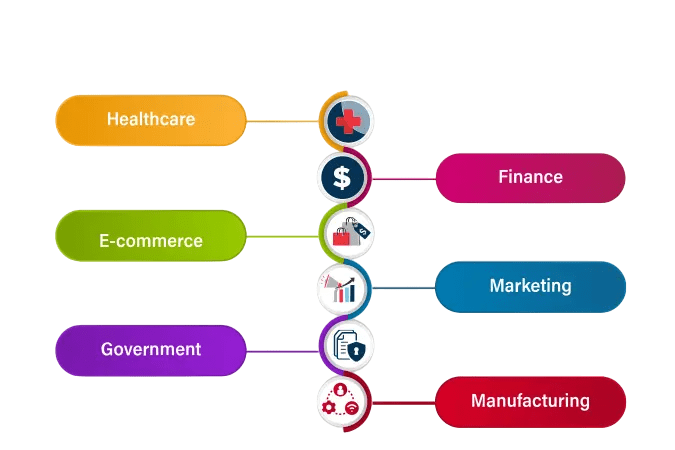
- Introduction to SOP for business analytics
- Importance in Applications
- Personal Background
- Academic Journey
- Professional Experience
- Motivation for Business Analytics
- Short-Term Goals
- Long-Term Goals
- Why This Program/University
- Unique Skills and Strengths
- Challenges Overcome
- Conclusion
Introduction to SOP for Business analytics
A Statement of Purpose (SOP) is a vital document in academic and professional applications. It is a personal essay that explains who you are, your background, your goals, and why you are the right candidate for a particular program or position. Unlike a resume, which lists achievements and qualifications in a concise format, an SOP for Business Analytics provides the narrative behind your journey, motivations, and aspirations. It is your opportunity to showcase your personality, ambitions, Unique Skills and Strengths and fit for the program or job. The SOP is often the deciding factor in competitive admissions or job selections, as it reflects not only your achievements but also your thought process, communication skills, academic and professional interests and how well you understand the field you want to pursue. A well-crafted SOP can distinguish you from other candidates with similar academic records or experience.
Are You Interested in Learning More About Web Developer Certification? Sign Up For Our Web Developer Certification Courses Today!
Importance in Applications
An SOP is critical because it bridges the gap between your past experiences and your future goals. Admissions committees or hiring managers use it to:
- Assess Your Motivation: Why do you want to pursue this program or job? What drives you?
- Understand Your Fit: How does your background align with the program’s focus or the company’s culture?
- Evaluate Your Communication Skills: Clear, coherent writing indicates your ability to articulate ideas effectively.
- Identify Your Unique Qualities: What sets you apart from others? How do you bring value?
- Gauge Commitment: Are you genuinely interested and prepared for the challenges ahead?
- Your SOP should start by introducing your personal background in a way that connects naturally to your academic and professional interests. This may include your upbringing, family influences, or early experiences that shaped your worldview.
- For example, growing up in a family of entrepreneurs might have sparked your interest in business analytics, data analyst or witnessing inefficiencies in local industries could have motivated you to seek data-driven solutions.
- Sharing a brief personal story or reflection helps humanize your application and provides context for your subsequent choices.
- Define your immediate objectives post-admission or hiring. These goals should be realistic and aligned with the program’s offerings or the job role.
- For a Business Analytics program, short-term goals might include mastering advanced analytical tools, gaining hands-on experience with real datasets, or securing internships with leading companies.
- Make sure your goals are specific, measurable, and tied to the Unique Skills and Strengths or knowledge you expect to gain.
- Explain your vision for the future and how this program or job fits into that trajectory.
- Long-term goals could include becoming a data scientist, leading analytics teams, launching your own analytics consultancy, or contributing to technological innovations in the industry.
- Connecting short-term and long-term goals creates a coherent narrative and shows strategic thinking.
- Faculty expertise and research areas
- Curriculum strengths and specializations
- Industry connections and internship opportunities
- Campus culture and extracurricular offerings
- Alumni network and career support
- Technical skills (programming languages, statistical software, machine learning techniques)
- Analytical thinking and problem-solving abilitiesv
- Communication and teamwork skills
- Leadership and project management experience
- Adaptability and eagerness to learn
In many cases, a strong SOP can compensate for less-than-perfect grades or limited experience by emphasizing your passion, potential, and readiness to learn.

Personal Background
Academic Journey
Detail your academic and professional interests history by highlighting key milestones, courses, or projects that laid the foundation for your chosen field. Mention relevant subjects, research, or extracurricular activities. For instance, if you’re applying for Business Analytics, you could describe how courses in statistics, mathematics, data analyst, computer science, or economics inspired you. If you undertook any research projects or internships involving data analysis, discuss these experiences and the skills you gained. Discussing your academic journey also allows you to explain any inconsistencies or gaps and demonstrate how you overcame challenges to improve.
Professional Experience
If you have work experience, describe roles that are relevant to the program or position. Focus on what you accomplished,Unique Skills and Strengths, and how these experiences shaped your professional aspirations. For example, working as a data analyst, business consultant, or software developer can provide practical insights into the importance of analytics in decision-making. Highlight specific projects where you contribute meaningfully or introduced innovations. If you lack formal work experience, you can discuss internships, volunteer work, freelance projects, or even significant academic and professional interests assignments that simulate real-world challenges.
Excited to Obtaining Your web developer Certificate? View The web developer course Offered By ACTE Right Now!
Motivation for Business Analytics (or Chosen Field)
Clearly articulate why you are passionate about the chosen field. What aspects excite you? Is it the power of data to solve complex problems, the blend of technical and business knowledge, or the impact analytics can have on strategic decisions? Use concrete examples perhaps a case study you encountered, a personal project, or an industry trend that cemented your interest. Demonstrating an informed and enthusiastic understanding of the field shows the committee you have done your homework and are committed to pursuing this path.

Short-Term Goals
Long-Term Goals
Why This Program/University
This is a critical section where you must show that you have researched the institution or company and explain why it is the right fit for you. Mention unique features such as:
Explain how these align with your interests, learning style, and goals.Avoid generic statements; tailor this section specifically for each application.
Interested in Pursuing web developer certification Program? Enroll For Web developer course Today!
Unique Skills and Strengths
Highlight the qualities and skills that differentiate you from other candidates. These might include:
Support these claims with examples or brief anecdotes.
Challenges Overcome
If applicable, share significant obstacles you faced and how you overcame them. This could involve academic difficulties, personal hardships, cultural adjustments, or professional setbacks. Discussing challenges demonstrates resilience, maturity, and the capacity to thrive under pressure, all valuable traits.
Conclusion
End your SOP for Business Analytics by summarizing your motivations, academic and professional interests, reiterating your fit, and expressing your commitment to the program or position. Emphasize your enthusiasm for contributing positively to the institution or company and your readiness to meet challenges. A strong conclusion leaves a lasting impression, reinforcing your suitability and drive.

